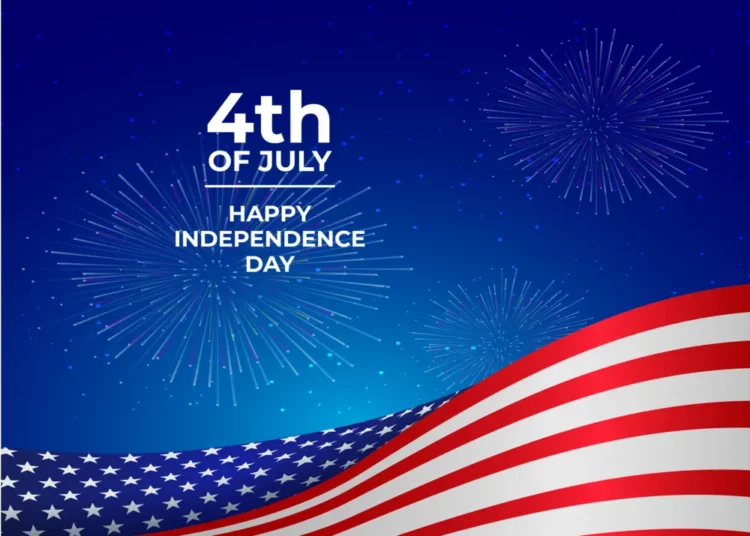The United States gears up to celebrate its 248th Independence Day on the Fourth of July, commemorating the adoption of the Declaration of Independence in 1776. This federal holiday honors the birth of the nation, founded on principles of liberty and self-government.
Historical Significance
On July 2, 1776, the Second Continental Congress approved the Lee Resolution, which declared the colonies independent from Great Britain. Two days later, on July 4, the Declaration of Independence was officially adopted. This document, primarily authored by Thomas Jefferson, announced the colonies’ decision to break free from British governance and outlined the principles of individual liberty and government by consent of the governed.
Traditional Celebrations.
The United States commemorates its Independence Day with fireworks, parades, concerts, and family gatherings across the country. As Americans remember their past and reflect on the values of liberty and democracy, the day will be filled with patriotic displays and a sense of solidarity, reminding everyone of the continuing spirit of the nation’s founding.
Historical Events
July 4, is also significant for several other notable historical events that occurred on this day throughout American history.
Declaration of Independence (1776) On July 4, 1776, the Second Continental Congress formally adopted the Declaration of Independence, declaring the Thirteen Colonies free and independent states, no longer subject to British rule.
Deaths of Founding Fathers (1826) Remarkably, Thomas Jefferson and John Adams, two of the signatories of the Declaration of Independence and later presidents of the United States, both died on July 4, 1826, marking the 50th anniversary of the Declaration of Independence.
Death of President James Monroe (1831) James Monroe, the fifth President of the United States and another Founding Father, died on July 4, 1831, making him the third president to pass away on Independence Day.
Birth of President Calvin Coolidge (1872) Calvin Coolidge, the 30th President of the United States, was born on July 4, 1872. He was the only U.S. president who was born on Independence Day.
July 4th holds a unique place in American history, marked by significant events that have shaped the nation. From the adoption of the Declaration of Independence to the coincidental deaths of key Founding Fathers, and other notable occurrences, this day is rich with historical importance and patriotic pride.











